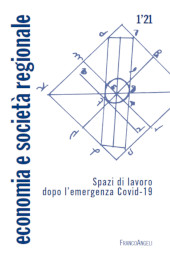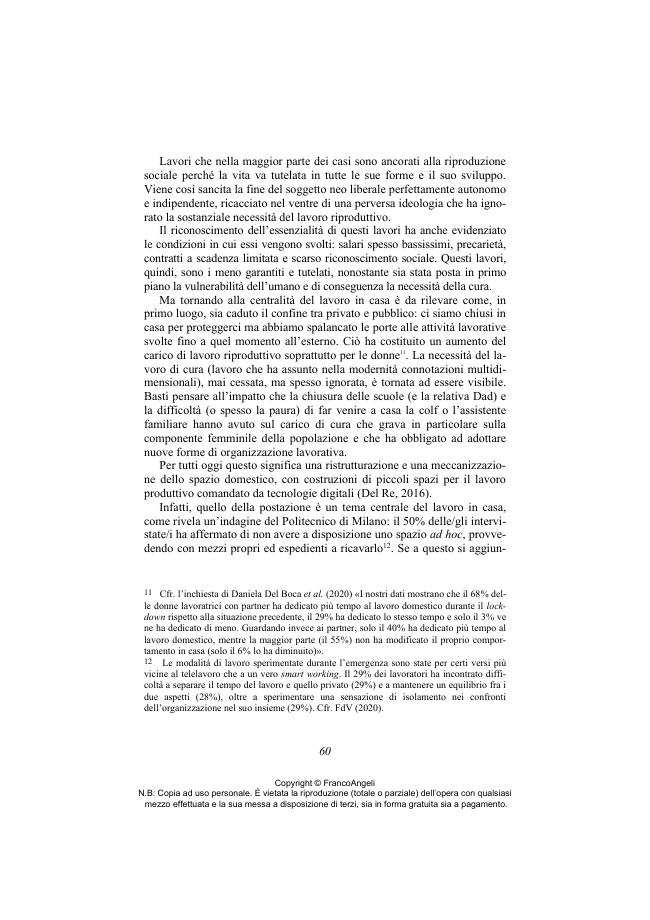Lavorare da casa, lavorare in casa
55-65 p.
Durante questa pandemia da SarsCov2 abbiamo vissuto trasformazioni del modo di vivere e di produrre che da emergenziali sono divenute rapidamente strutturali. Il confinamento ha segnato il definitivo ingresso in un'era digitale, con le sue specifiche forme di sfruttamento, controllo e sorveglianza in un quadro di welfare insufficiente, connotato da una debolezza dei servizi pubblici, dagli ospedali alla sanità territoriale, dalla scuola fino all'università. Si è instaurato un paradigma tecnologico, di cui si vedevano le avvisaglie già prima della pandemia, con un'accelerazione sconcertante. Questo ha acuito diseguaglianze economiche e sociali, razziali e di genere preesistenti. Ma ha fatto anche scoprire la casa come terreno di scontro tra corpi "produttivi" e corpi deboli, luogo di lavoro non più separato tra produzione e riproduzione.
L'emergere della consapevolezza della sostanziale necessità del lavoro riproduttivo, tradizionalmente attribuito alle donne, richiede una diversa visione sociale del welfare, una diversa organizzazione sociale del territorio e delle abitazioni, nonché una riqualificazione salariale di quello che molti chiamano "lavoro di cura", riducendone inoltre i tempi infiniti e ridistribuendoli socialmente. [Testo dell'editore].
Since the beginning of this SarsCov2 pandemic we have been experiencing transformations in the way of living and producing that from the initial emergency level, have rapidly become structural. Confinement has marked our definitive entry into the digital era, with its specific forms of exploitation, control and surveillance within a largely inadequate welfare framework, marked by a weakness in the public services, from the hospitals to the territorial health care structures, from the school system to the universities. A technological paradigm has been established, whose signs were visible well before the pandemic, with a stunning acceleration. A situation that has exacerbated all the preexisting economic and social, racial and gender inequalities. But it has also led to the discovery of the house as a battleground in which productive and weak bodies collide, a workplace no longer separated from the place of production and reproduction.
The rising of the awareness of the substantial necessity of the reproductive work, traditionally attributed to women only, requires a different social vision of the welfare, a different social organization of the territory and of the housing, as well as a wage upgrading of what is known as "care work", with a reduction of its infinite length and a social redistribution of its duties. [Publisher's text].
Ist Teil von
Economia e società regionale : 1, 2021-
Artikel aus derselben Ausgabe (einzeln erhältlich)
-
Informationen
ISSN: 2038-6745
KEYWORDS
- Reproductive Work, Smart Working, Pandemic, Welfare, Women



